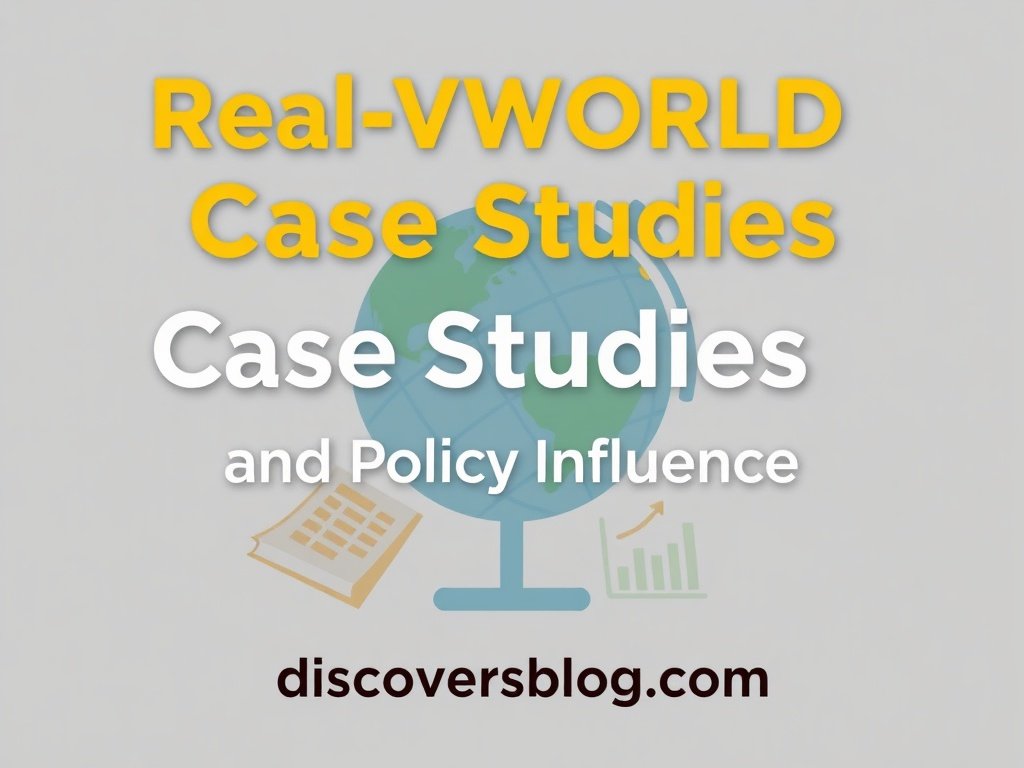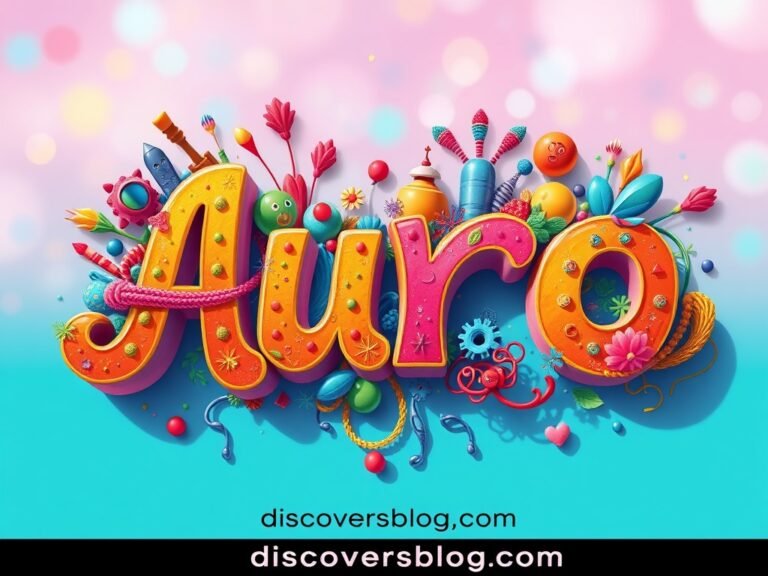Understanding Aurö and Its Purpose
In the face of environmental crises, the need for economic systems that account for nature is stronger than ever. This is where Aurö, a pivotal organization under the German Economic Association, comes in. As a think tank and professional hub, Aurö addresses the challenges posed by environmental degradation using the lens of environmental and resource economics.
Through its commitment to applied research, Aurö facilitates discussion and development in areas such as climate economics, natural capital, and resource sustainability. The platform has brought together some of the brightest minds in academia, government, and civil society through its comprehensive Environmental Research Network, where economic theory meets ecological urgency.
Origin of Aurö and Its Academic Foundations
Aurö was formally established as the Auro Committee within the German Economic Association, a prominent body known for its rigorous standards and academic excellence. The foundation aimed to fill the gap left by traditional economics in addressing environmental concerns.
The founding members understood early on that ecological degradation couldn’t be ignored. Aurö was thus formed to advance environmental governance, assess policy impact, and evaluate economic instruments for environment that promote both growth and conservation. Today, it holds a central place in European debates about the future of environmental economics.
Aurö Workshops: Nurturing Young Environmental Economists
One of Aurö’s most influential programs is the Aurö Workshop, a recurring event designed for young environmental economists. These sessions provide a platform for students, PhD researchers, and early-career professionals to share innovative research on pressing environmental challenges.
Participants in these workshops don’t just sit through lectures—they collaborate, debate, and problem-solve. Sessions often explore topics like climate policy tools, circular economy, and carbon pricing, ensuring that upcoming economists are well-versed in real-world problem-solving.
Who Attends the Aurö Workshop?
The workshops attract talent from around the globe, particularly those focused on climate change, biodiversity economics, and resource economics. Participants typically have a background in economics, environmental sciences, or political studies and demonstrate an interest in collaborative environmental solutions.
The selection process emphasizes interdisciplinary skills and policy insight. This ensures that participants are not just academically strong but also able to think across fields such as eco-political frameworks and sustainable development strategies.
Topics and Activities Covered in Aurö Programs
Aurö’s workshops cover a range of detailed, timely topics related to the current environmental landscape. Below are just a few focus areas:
- Environmental Valuation and Natural Capital Accounting
- Climate Economics and Cost Analysis
- Carbon Market Modeling
- Data-driven Environmental Models
- Green Taxation and Subsidy Mechanisms
Along with theory, these workshops also offer practical simulations, allowing participants to engage with environmental data analytics and develop evidence-based policy proposals.
Aurö’s Involvement in the Green Economy Transition
Aurö’s research directly supports the global shift toward a green economy. It provides data and models that help governments plan low-carbon transitions while safeguarding employment and equity.
One of Aurö’s recent projects helped model the effects of renewable energy subsidies on regional employment. Another focused on natural capital preservation in urban planning, showing how green spaces can be incorporated into city development without sacrificing economic value.
Real-World Case Studies and Policy Influence

Aurö’s strength lies in its evidence-based research, which has directly influenced both national and EU policies. Several case studies supported by Aurö demonstrate the importance of integrating environmental metrics into policy frameworks.
For example:
- Germany’s National Carbon Pricing System was designed using modeling tools informed by Aurö economists.
- A collaborative project on biodiversity economics supported cross-ministerial funding for wetland restoration.
- The group contributed to EU talks on extending the circular economy framework into textile and construction sectors.
Cross-Border Environmental Collaboration
Aurö doesn’t limit its impact to Germany or even Europe. Through cross-border environmental collaboration, it works with partners from across continents—ranging from the UN and EU to smaller think tanks in Africa and South America.
The group actively engages in international environmental dialogue to share data, conduct joint studies, and influence global frameworks like the Paris Agreement. These partnerships reflect Aurö’s dedication to a truly global solution to climate and ecological problems.
Environmental Policy Advisory and Government Dialogue
Policy impact is one of Aurö’s greatest strengths. The organization offers policy advisory services to governments, think tanks, and public institutions. Its insights are often incorporated into national environmental action plans and long-term economic strategy documents.
Aurö advocates for using tools like carbon pricing, green taxation, and environmental valuation to shift the cost of pollution onto polluters and incentivize clean growth. Such policy tools are essential for efficient, fair climate mitigation.
Aurö and Environmental Education Reform
Beyond workshops, Aurö plays a crucial role in shaping academic pathways. It works with universities to introduce environmental modules into mainstream economics programs. This reform aims to create a new generation of economists who understand not just GDP, but also planetary boundaries.
Aurö-backed courses now include:
- Environmental Economics and Policy
- Quantitative Tools for Sustainability Analysis
- Economic Instruments for Ecosystem Services
- Introduction to Climate Change Economics
Environmental Data Analytics and Modeling Innovation
In recent years, data-driven environmental models have become a core part of Aurö’s strategy. The group supports real-time modeling tools to simulate the environmental and economic impacts of various scenarios—such as carbon tax implementation or forest cover expansion.
Using environmental data analytics, these models allow better predictions, stronger policy choices, and easier communication with decision-makers. Governments and local authorities alike benefit from these insights when making budget or infrastructure decisions.
Public Engagement and Outreach Programs
Aurö understands that academic insight alone is not enough. For real change, the public must be engaged. That’s why it hosts community dialogues, public lectures, and media campaigns. Its goal is to raise awareness about resource sustainability, climate risks, and the need for structural reform.
Even the world of sports has seen Aurö’s impact. From Cancún FC to Santos Laguna in Liga MX, clubs are implementing green practices in their stadiums. This reflects how stadium atmosphere, passionate fans, and environmental policies can intersect to create wider influence.
Challenges Faced and Criticism Responded To
Despite its many successes, Aurö is not free from challenges. Some politicians argue that environmental policy costs are too high. Others claim the models are too complex for practical use.
Yet, Aurö has responded by simplifying tools, enhancing transparency, and promoting open-access research. The commitment to clarity and evidence has helped build credibility, especially within academic environmental forums and among young professionals.
Aurö’s Vision for the Future of Environmental Economics
Looking forward, Aurö has outlined ambitious goals to continue its impact:
- Expanding the reach of workshops globally
- Strengthening links between academia and governments
- Launching new pilot projects in urban sustainability
- Increasing access to training for underrepresented researchers
With these steps, Aurö aims to transform the way countries think about economics—not as growth at all costs, but as a system of balance between profit and planet.
Conclusion: Aurö’s Lasting Legacy in Environmental Change
Aurö is not just a committee or workshop series—it is a movement. A movement driven by knowledge, backed by science, and grounded in ethics. Through its commitment to interdisciplinary research, policy reform, and youth in environmental policy, it is shaping the sustainable economy of the future.
From real-time models and workshop dialogues to influencing global treaties, Aurö has embedded itself into the heart of climate strategy. The economic association behind it ensures that its work maintains both rigor and real-world relevance.
Aurö’s legacy will not just be measured in reports or conferences—but in the cleaner air, restored forests, and fairer societies it helps bring to life.
FAQs
Q1: What does Aurö focus on?
Aurö focuses on environmental and resource economics, aiming to align economic growth with sustainability and climate protection through research, workshops, and policy engagement.
Q2: How does Aurö impact real-world policies?
Aurö contributes expert advice and models to government bodies, helping shape laws and programs like carbon pricing, green taxation, and biodiversity funding.
Q3: Can students join Aurö programs?
Yes. The Aurö Workshop invites students and early-career researchers from around the world. Selection is competitive and based on research proposals and academic interest.


